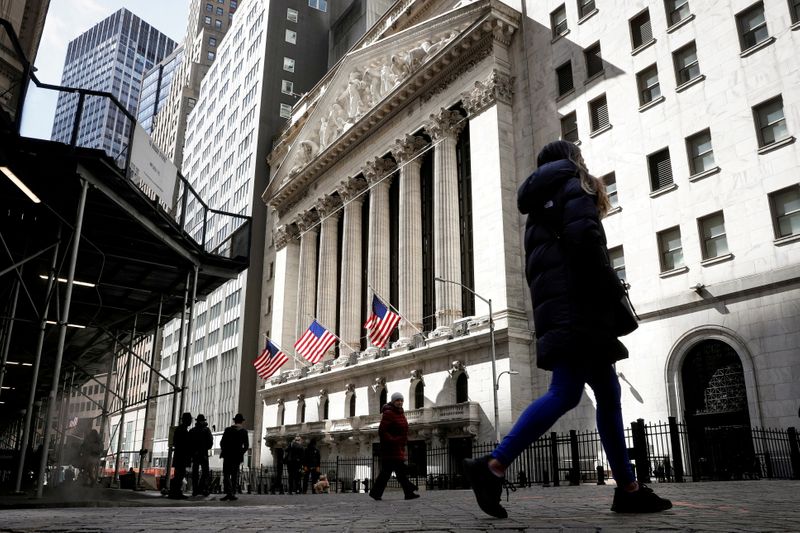LONDON (Reuters) – Investors jumped off the reflation trade train, cut inflation expectations and rushed back to technology stocks on signs that global economies were in either mid- or late cycle, BofA’s July fund manager survey showed on Tuesday.
Only 22% of BofA’s clients, with $805 billion in assets under management, said they expect higher inflation in the next 12 months. That’s 42% below last month’s expectations.
Still, inflation remained one of the biggest tail risks for the fifth month running, the survey showed.
The June U.S. consumer price data, a key inflation measure, will be released later in the day. A Reuters poll shows expectations for Tuesday’s inflation data to come in at 4.9% compared to 5% the month before.
Investors were “much less bullish” on growth, profits, inflation and yield curve steepening due to peaking economic growth and fiscal stimulus, the investment bank’s top strategist Michael Hartnett said in a note.
Though it’s been just over a year since a new business cycle kicked off, 73% of the investors in the survey think the global economy is in either mid- or late cycle. Typically, markets display “mid-cycle” characteristics three to five years later.
That has led to investors quickly switching sides: moving from junk to quality names, small caps to large caps and ‘value’ stocks to ‘growth’ stocks. Long tech was seen as the most crowded trade in the latest survey.
Tech stocks, which are a part of the ‘growth’ basket, surged in the past few days as government bond yields slumped. Tech stocks are particularly sensitive to rising rate expectations because their value rests heavily on future earnings, which are discounted more deeply when rates rise.
Nearly 40% of the 270 panelists surveyed said they expect the U.S. Federal Reserve to hike rates in January 2023, pushing it back from November 2022 they had previously expected.
(Graphic: Value’s recent outperformance wiped out: https://fingfx.thomsonreuters.com/gfx/buzz/xlbpgqdknpq/Pasted%20image%201626084518290.png)
(Reporting by Thyagaraju Adinarayan; editing by Dhara Ranasinghe and Raissa Kasolowsky)






















